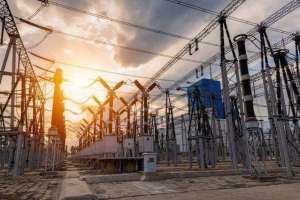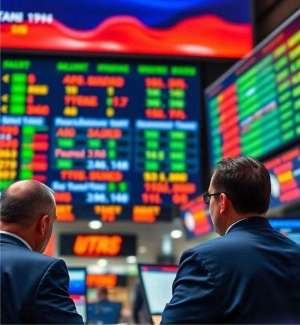It may seem surprising for foreigners that are watching the protests in the US, but most people here in New York, support the Black Lives Matter protesters.
The recent polls, including those in the New York Times, show that Americans have moved overwhelmingly in favor of the movement - over the last two years, the number of voters who believe racism has increased from 50%, to over 75%.
Looking from abroad at videos with riots or parts from Seattle turned into some kind of autonomous region, you could believe that the middle class or wealthy America is outraged, scared or decided to defend itself against urban riots - and that was definitely the case of one of the bloodiest race riots in recent history, the Los Angeles Riots, of 1992.
This time it's not the case.
As an analyst of the stock market, familiar with the circles of the Wall Street community, I can confirm from my personal experience what the polls show - even many wealth Americans support the protesters, and the protesters' ability to stay on the streets may be a result of this breath of support and sympathy which they get from the public.
Over the course of the last two years, a number of videos have appeared- shot mainly on personal phones - which can no longer be ignored and are similar and depressingly confirm each other.
In one of them, a black person is humiliated, beaten up or killed, and the people doing that seem to be sure that they will be able to get away unpunished, until they find out, much later, through the media, that the evidence has been placed on file.
The evidence has become too clear to be ignored, even for the people who are normally trying to minimize racism - even George Bush, who, amazingly, has admitted in a press release, that America is often seen as being unfair to people of color.
Nevertheless, not everybody supports the movement and Trump and his supporters have responded to "Black Lives Matter" with "All Lives Matter", a slogan which was ridiculed by the supporters of Black Lives Matter, who have interpreted it as a semantic attempt to ignore the blacks' demands.
The reasons for that are complex and are specific to American history.
First of all, there has been a recognition of the fact that inequality in this country and the economic crisis have gone too far in general.
It would seem that in 1989, in retrospect, was the peak for American aspirations - as the "Communist world" entered the "Capitalist system", and more countries joined the world market, American production has been devastated, leaving many industrial towns in unbelievable poverty.
If a Romanian were to take a walk in Gary, Indiana - an almost abandoned factory-city known as the "Pompeii in the Midwest" - he could see many things that remind him of similar industrial cities in early 90s Romania the early years - a devastated industrial base, destroyed pensions and social services, high levels of unemployment and general despair.
In Romania, this was considered a necessary evil, because the country switched to capitalism: in the United States, it was the side effect of globalization policies that did not have a clear ideological direction, but which effectively moved the entire productive economy into a series of large, well-educated cities, where the new economy based on "knowledge" and "services" took place.
An insignificant number of the poor during this process were white people.
However, in the last twenty years not a single group of victims of growing inequality has been created, but two. As the rich moved to places like San Francisco and New York, poor minorities living in these richer cities found the cost of living rising.
As America went from being the world's lab to being the world's web designer, wealth was made in cities, leading to rising rents, food, and services, but leaving wages in the same way as before in jobs requiring lower qualifications.
Two different groups of poor people then, with a history of antagonism, developed in the country, without any message from the government, except for vague promises, that they would all be taken care of.
Meanwhile, wages have stagnated for most people in America, while prices have risen.
The Midwest and South have become fertile ground for a policy of resentment and suspicion that culminated in Trumpism.
In the big cities, on the other hand, racism was seen as one of the country's major evils, and the sources of racism were considered (unfairly) exactly the small industrial cities that had now become poor.























































